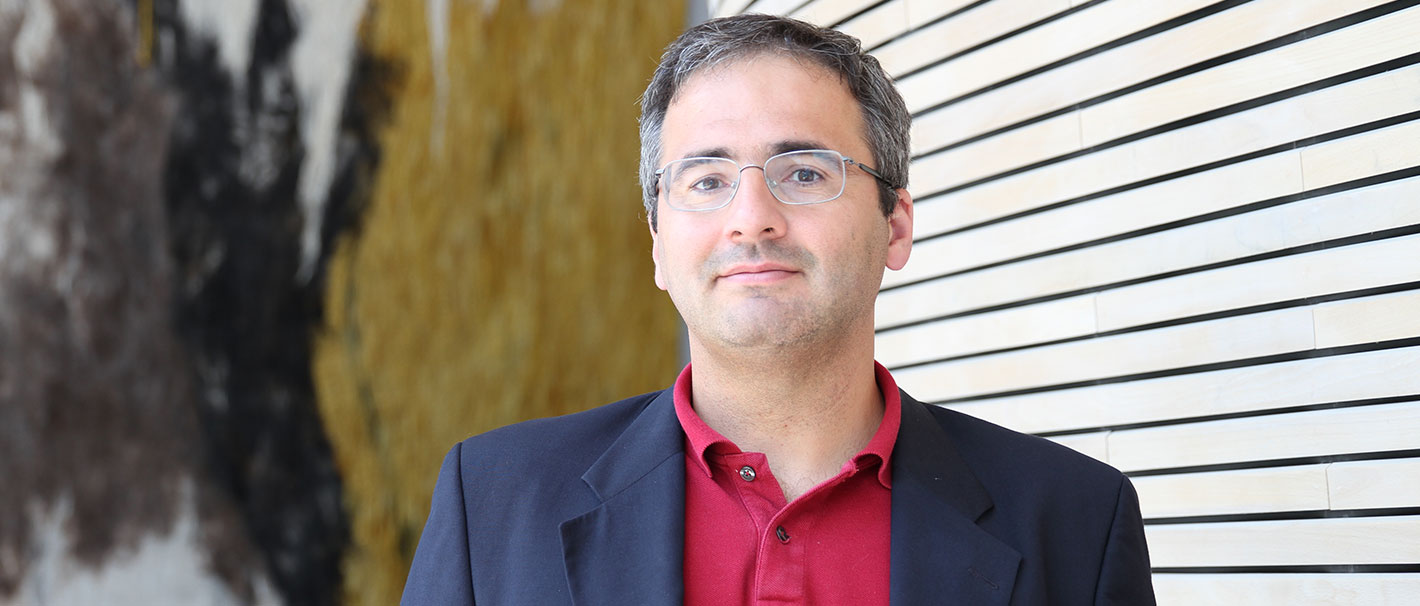19. October 2017 | Interviews
Walking between the worlds – labour market economist and former Secretary of State Pedro S. Martins

As in other Southern European countries, Portugal’s youth unemployment rate is very high. In your view, what are the causes for this misery? Can we attribute such high unemployment to generally weak growth or to a particular disadvantage of young people in these countries’ labor markets?
Ultimately I think the reason behind the high level of unemployment, especially of youth unemployment, was a misunderstanding in the country as in other Southern European EU Member States regarding the challenges that Euro membership would pose. The Euro offered very good opportunities for growth but also required different economic – and particularly labour market – institutions from those of a country until then used to high levels of inflation. The Euro also created a false sense of prosperity that led to high levels of indebtedness across the economy and significantly misallocation of credit. When the financial crisis of 2008 hit Europe, the impact in countries like Portugal was severe. As the labour market was fairly segmented, the outsiders – where the young are over-represented – took a very big hit.
As a researcher, you have looked at the situation in Germany, where fewer young people are unemployed. From your standpoint, what does Germany do differently?
Germany modernised its labour market institutions significantly before the financial crisis with the Hartz reforms. Even before that, there was a strong process towards collective bargaining decentralisation that led to gains in competitiveness. The close links between businesses and training, particularly amongst the youth through apprenticeships, are certainly a plus. Not least important, the Public Employment Service of Germany, the Bundesagentur für Arbeit, is probably one of the most modern and dynamic in the world, making a significant contribution to a more efficient labour market.
“The German Public Employment Service is probably one of the most modern and dynamic in the world.”
With regards to Germany’s situation, can we draw lessons for Southern Europe? To what degree is the German model transferable?
There are certainly many lessons, along the lines of my answer above. The reforms introduced in Southern Europe during the period from 2010 to 2013 were, to some extent, based on the reforms introduced in Germany ten years before. However, of course the German model is not fully transferable. For instance, the apprenticeship system evolved during decades or even centuries —it cannot be implanted in the South overnight. Moreover, the Euro itself was largely a non-event in Germany, while it represented a major systemic shift in other countries — even if there was not a full realisation of its impact at the time it replaced the previous national currencies.
In your view, what must happen to fundamentally improve the situation in Southern Europe?
There is a strong recovery already in progress in many Southern European countries. In Portugal, for instance, the unemployment rate dropped from nearly 18 per cent in 2013 to 12 per cent two years later. GDP is growing at nearly 3 per cent per year in 2017. However, it would be critical to pursue further reforms and not become complacent given the positive outlook. It is far better to reform during periods of growth than in times of crisis. More specifically, I think more attention needs to be paid by many Sothern European countries on two specific areas — employment services and collective bargaining — in which these EU Member States are still far away from the frontier of international best practice.
“It is far better to reform during periods of growth than in times of crisis.”
You are not only a researcher, but you have also been the Secretary of State of Employment in the Portuguese government from 2011 to 2013. How much of the measures that you considered necessary as a researcher, have you been able to implement as an active politician?
Fortunately I was able to implement most measures. These included the modernisation of the Public Employment Service, the introduction of new active labour market policies, some decentralisation of collective bargaining (with greater weight on social partner representativeness), smaller differences in employment protection between open-ended and fixed-term contracts, better designed unemployment benefits, and greater ease of access to a number of regulated professions. These measures had been identified before as important in a number of studies by many academics — including myself — and international organisations. Following their introduction and implementation, some of these measures have already been evaluated, in some cases drawing on counterfactual approaches and micro data, including by the OECD in a detailed study, and proved to make a significant contribution to the fast recovery of the labour market and possibly also of the economy itself.
In your view, do politics rather suffer from problems gaining or implementing new insights?
Politicians tend to be risk-averse individuals. They also generally feel more comfortable with words than actions. Thinking carefully about policies and monitoring their practical implementation delivers very little returns from a political perspective. The political cycle also discourages actions that have short-term costs and long-term benefits. Academics and politicians are therefore very different people. Moreover, when an academic turns into a politician — or vice-versa — they tend to become similar to their new peers. Given this context, I think academics should try as hard as possible to engage with politicians and, more importantly, the general public, indirectly through the media or directly via social networks, with novel ideas and results that merit attention, discussion and — ultimately — action!
“Academics and politicians are very different people.”
Would Portugal’s current youth unemployment rate be lower, if the country had not joined the Euro area, and thus devaluated its currency?
Definitely in the short and medium term, not necessarily in the long term. As mentioned above, the lack of institutional reforms in the run up to euro membership, the increasing public and private debt in the 2000s, the loss in competitiveness over the same period, and the severity of the 2008 financial crisis created a perfect storm for countries like Portugal. While in previous crises, currency devaluation and the high inflation that followed reduced real wages and preserved competitiveness and employment, in the recent crisis inflation was virtually zero and downward nominal wage rigidity raised its ugly head, testing the resilience of employment to the limit and leading to massive cuts in hirings, with very negative effects on the youth. From a long-term perspective, I believe a stable currency can be very beneficial for growth — and therefore also for youth employment.
The interview was conducted by Silke Anger and Martin Schludi.
Authors:
- Silke Anger
- Martin Schludi

 Professor Dr Silke Anger is head of the research department “Education, Training, and Employment Over the Life Course” at the IAB.
Professor Dr Silke Anger is head of the research department “Education, Training, and Employment Over the Life Course” at the IAB. Dr Martin Schludi is scientific editor in the department "Media and Communication" at the IAB.
Dr Martin Schludi is scientific editor in the department "Media and Communication" at the IAB.